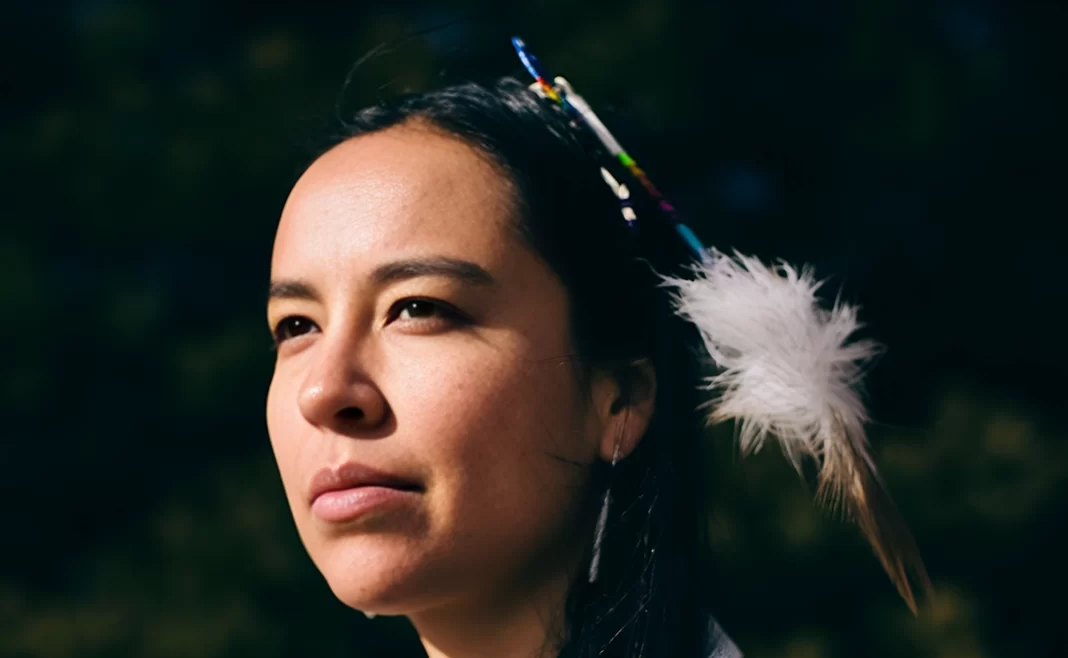A renowned scientist says ethical, abundant food systems that lasted successfully for thousands of years can be reintroduced again.
Dr. Lyla June Johnston, also known as Lyla June (Diné/Navajo, Tsétsêhéstâhese/Cheyenne, and European), is a human ecologist, public speaker, poet, musician, and community organizer. She is a keynote speaker at the upcoming World Green Infrastructure Congress 2024, hosted by Waipapa Taumata Rau, University of Auckland.
From her home in Gallup, New Mexico, Johnston expresses her excitement about attending the event, which is being held in collaboration with Design for Nature and the World Green Infrastructure Network. The international event promotes the exchange of knowledge and discusses nature-based solutions in urban environments.
Johnston emphasises that history offers numerous examples of successful food systems, and the sharing of this knowledge among different cultures gives her optimism for the future.
“My main message will be to share about a dozen examples of humanity creating successful, highly productive, and deeply ethical food systems that lasted thousands of years. Each of these examples shows how humanity has not harmed the earth but has been a great asset to it. And if we’ve done it before, by God, we can do it again.”
She has spoken about the American chestnut tree, now nearly extinct. Evidence suggests these trees were planted and cared for by Indigenous peoples, resembling a vast orchard. Spaced far apart, the trees thrived with ample access to sunlight, water, and nutrients.
Indigenous peoples would burn the vegetation around chestnut trees to eliminate competition and enrich the soil with ash as fertilizer. This practice created nutrient-dense meadows that attracted deer, bison, and other herbivores, which were also valuable food sources. Johnston has presented soil core samples containing nearly 10,000 years of fossilized pollen data, demonstrating that Indigenous people managed a biodiverse food forest of black walnut, hickory nut, chestnut, and other edible species for 3,000 years.
“We need to fall in love with humanity again. We’re not pests, we’re not a stain on the fabric of creation; we actually belong here, especially when we’re guided by the right practical and ethical compass. We can create beauty for ourselves and other species.”
Johnston’s multi-genre presentations have inspired personal, collective, and ecological healing worldwide. At Stanford, she blends her study of human ecology, graduate work in Indigenous Pedagogy, and traditional worldview to craft insightful perspectives, solutions, and music. Her doctoral research showed how pre-colonial Indigenous Nations shaped Turtle Island (the Americas) to create abundant food systems, empowering humanity to connect with the natural world. She also acknowledges the University of Alaska Fairbanks as a crucial pathway to her journey and career.
Johnston is particularly looking forward to engaging with tangata whenua when she arrives for the Congress, which will be held from September 3-5.
“I’m excited to create more alliances and relationships, to dine with our relatives in Aotearoa. As a person from the settler colonial state of America, I’m excited to visit Aotearoa. Every time, I am deeply moved and inspired by Māori, the land, and the way they are working towards a better world.”
Currently writing a book, Johnston says it’s important to use an accessible format to communicate the scientific findings of her research to a broader audience.
“I have to communicate scientific knowledge beyond the university, so that it can help the world. I need to move beyond academic jargon and communicate these ideas through the likes of TED Talks and through this book I’m writing now. It shares scientific findings through the medium of story.”
When asked how scientific peers viewed her research, Johnston says a speech she gave on the greatest technology – love – received a standing ovation. She argues that the scientific community, in its quest for rigor, has often excluded the concept of love and the emotional world from analyses.
“Love is as important as gravity. When you try to explain natural phenomena, the only reason the eagle flies back and forth to the nest to feed some ugly birds is because of love.
“Love is the greatest technology. Even with wealth disparity and all the advanced technology – powerful telescopes that help us see far into space – we still can’t see the person who has no home standing right in front of us. What good is this technology if we are devoid of love? To cut out love is to deny our own reality.”
The 11th World Green Infrastructure Congress will be held at the Sir Owen G Glenn Building, Tāmaki Makaurau Auckland, from September 3 to 5.
Read more about Lyla June Johnston at www.lylajune.com.






